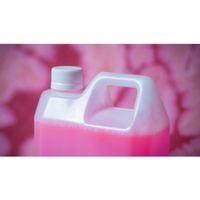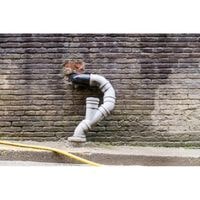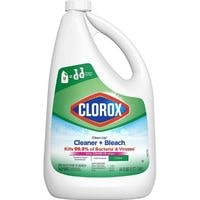How to dispose of bleach. This is a useful element to have available to disinfect surfaces and clean your home.
But like many household chemicals, it can be dangerous if you don’t handle it safely or dispose of it properly.
For the most part, bleach used in the United States is controlled by law and even so, there are still things you should be careful with when using bleach around your home.
How to Dispose of Bleach

Bleach needs to be disposed of properly. Do not pour it down the sink or toilet, even if diluted with water. An even better way to dispose of your bleach is to give it away in another manner that isn’t harmful like storing it out on a garage shelf for your next cleaning campaign or wash day.
The important thing is that you don’t start dumping bleach into the environment and this includes pouring it down the drain.
Kitchen Drainage
You can choose to pour bleach down the kitchen drain, but it’s not ideal. The first thing you need to do is turn on the faucet. When the water assumes a steady flow you should slowly pour the bleach down the drain.
Make sure the flow of both the water and the bleach is steady. Any difference in flow rate can result in damage to the environment. By ensuring that a steady dilute solution of bleach is flowing down the drain.
You limit your harm to vegetation as well as prevent further contamination of already-polluted areas of water when cleaning pipes near an abandoned leaking toxic waste dump site on your way home after a long hard day at work (for example).
The Toilet drain

Pouring bleach into the toilet can be a quick method of clearing up most blockages. As with many methods, there are multiple steps to getting the right result.
The first step is to pour in the substance one scoop at a time and then flush.
You should wait two minutes between each scoop before flushing write the amount you poured in so that if it doesn’t work the first time, you know how much more is needed to achieve an effective result.
The Bathtub

The final step is closing the water tap. Make sure it’s closed all the way so that if you are covering your drains with chemicals like bleach you don’t accidentally have a mixture of chlorine with other chemicals which will actually give off stronger fumes and make it harder for your family to breathe during this time.
You can do this simple trick by thinking about what ingredients are in your chemical drain cleaner before purchasing.
A good example of this is using chemical drain cleaners containing sodium hydroxide instead of caustic soda.
When opening up clogged bathtubs because if their names are starting with “caustic,” that means they tend to pair better with other chemical ingredients while also giving off dangerous fumes – like when they come into contact with water as mentioned above.
Collection of household hazardous waste
If you have a septic tank or quite a bit of bleach to get rid of, the best way to dispose of it is to either hand it over to one of your local waste disposal authorities or contact your trash collecting service directly.
Your trash collector should be able to tell you where and when you can drop off certain household hazardous waste items.
So be sure to call them and inform them what specific stuff you have on hand so they don’t think that you’re trying to illegally dump it right before their eyes.
Is it bad to pour bleach on the ground?
It can kill many organisms, including E. coli. However, it will quickly become diluted with rainwater and sunlight causes chlorine to be removed as a gas.
It is primarily used in commercial applications on non-porous surfaces such as concrete floors and walls so that it is not washed off by repeated exposure to water or other cleaning solutions.
Chlorine bleach should not be used for killing plants because it will also damage soil microorganisms (good and bad) if applied directly on the soil.
Soils are too porous for chlorine bleach to have enough contact time with microorganisms (necessary for its effects).
Is it OK to pour bleach down shower drain?
No. While bleach can be powerful and effective at what it does, cleaning a drain pipe is not one of them.
Bleach has the potential to be corroded by other chemicals inside your plumbing system and may change the pH in the area leading to even more stoppage if you use bleach on its own without some vinegar or hot water.
How to dispose of bleach
Related Guides
